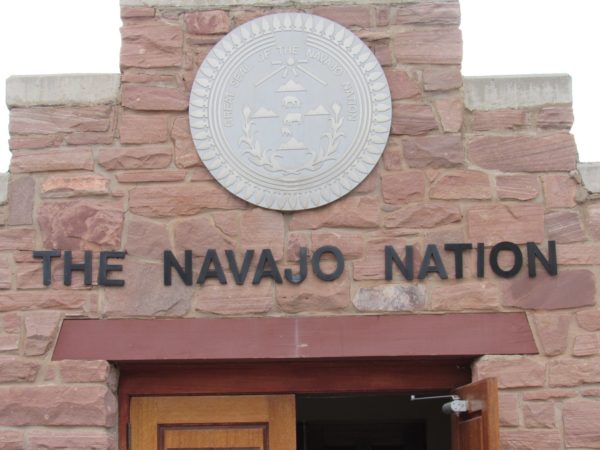
- Details
- By Native News Online Staff
WINDOW ROCK, Ariz. — On Wednesday, the Navajo Department of Health, in coordination with the Navajo Epidemiology Center and the Navajo Area Indian Health Service, reported 39 new COVID-19 positive cases for the Navajo Nation and four more deaths. The total number of deaths has reached 467 as of Wednesday. Reports indicate that 6,766 individuals have recovered from COVID-19. 83,527 people have been tested for COVID-19. The total number of COVID-19 positive cases for the Navajo Nation is 9,195.
Navajo Nation COVID-19 positive cases by Service Unit:
- Chinle Service Unit: 2,239
- Crownpoint Service Unit: 770
- Ft. Defiance Service Unit: 686
- Gallup Service Unit: 1,492
- Kayenta Service Unit: 1,270
- Shiprock Service Unit: 1,441
- Tuba City Service Unit: 859
- Winslow Service Unit: 431
* Seven residences with COVID-19 positive cases are not specific enough to place them accurately in a Service Unit.
On Wednesday, the state of Arizona reported 1,698 new cases of COVID-19, while New Mexico reported 229 new cases, and Utah reported 421 new cases. The Navajo Nation will implement a 32-hour weekend lockdown beginning on Saturday, Aug. 8 at 9:00 p.m. (MDT) until Monday, Aug. 10 at 5:00 a.m. The daily curfew will also be changed to 9:00 p.m. to 5:00 a.m.
“In recent discussions with health care experts, it’s apparent that many of the new cases we are seeing on the Navajo Nation can be attributed to our citizens traveling to cities such as Phoenix and Albuquerque and attending family gatherings or eating out in restaurants and then returning home with the virus and spreading it to others. This is based on the data and information that contact tracers are compiling. We cannot stress the importance of staying home on the weekends and practicing social distancing and wearing masks when you have to go into public, which should only be for essential items or other necessary errands. We are doing our best to implement policies to protect our people, but they only work if everyone adheres to them. We will not give up and we will continue to fight COVID-19,” said Navajo Nation President Jonathan Nez.
The Department of Health and the Health Command Operations Center is also preparing for the upcoming winter flu season. They have also created a vaccination group to develop plans securing and distributing a vaccine for COVID-19 once one is proven to be safe and made available.
For More Information
For more information including reports, helpful prevention tips, and more resources, please visit the Navajo Department of Health’s COVID-19 website. To contact the main Navajo Health Command Operations Center, please call (928) 871-7014
For up to date information on impact the coronavirus pandemic is having in the United States and around the world, visit the Worldometers website.
For up-to-date information about COVID-19, Native News Online encourages you to go to Indian Health Service’s COVID-19 webpage.
The Nez-Lizer Administration is also working with businesses to setup food donation drop-off sites at grocery stores to allow Navajo Nation residents to contribute non-perishable food items, which will be made available to Navajo people and others living in the Phoenix area as a way to give back to our relatives and friends of the Navajo Nation who graciously donated essential items to the Navajo Nation.
More Stories Like This
Native News Weekly (August 25, 2024): D.C. BriefsNavajo Nation Mourns the Passing of Former Vice President Rex Lee Jim
Deb Haaland Earns Endorsement From Communications Workers of America Local 7076
University Soccer Standout Leads by Example
Two Native Americans Named to Democratic Congressional Campaign Committee's“Red to Blue” Program
Help us defend tribal sovereignty.
At Native News Online, our mission is rooted in telling the stories that strengthen sovereignty and uplift Indigenous voices — not just at year’s end, but every single day.
Because of your generosity last year, we were able to keep our reporters on the ground in tribal communities, at national gatherings and in the halls of Congress — covering the issues that matter most to Indian Country: sovereignty, culture, education, health and economic opportunity.
That support sustained us through a tough year in 2025. Now, as we look to the year ahead, we need your help right now to ensure warrior journalism remains strong — reporting that defends tribal sovereignty, amplifies Native truth, and holds power accountable.
 The stakes couldn't be higher. Your support keeps Native voices heard, Native stories told and Native sovereignty defended.
The stakes couldn't be higher. Your support keeps Native voices heard, Native stories told and Native sovereignty defended.
Stand with Warrior Journalism today.
Levi Rickert (Potawatomi), Editor & Publisher

